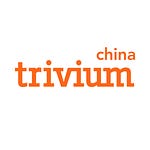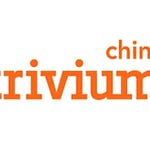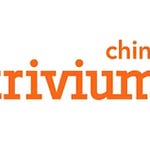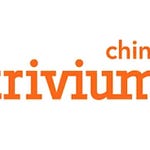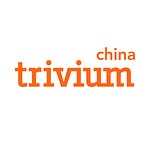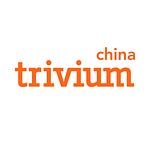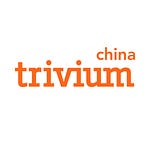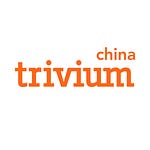In this week’s pod, Trivium co-founders Andrew Polk, Trey McArver, and Ether Yin all sat down together in DC to discuss the recent de-escalation in the US-China trade war.
They guys also drilled down on China’s move to grant licenses for critical mineral exports to the US, as part of the temporary trade reprieve.
And finally, the gents discussed where Beijing was really focused this week – deepening ties with Latin America.
You definitely won’t want to miss this one! Full transcript follows:
00:00:10
Andrew Polk:
Hi, everybody, and welcome to the latest Trivium China Podcast, a proud member of the Sinica Podcast Network. I’m your host, Trivium Co-founder, Andrew Polk. And today, I am joined by two of my colleagues, both of whom are in D.C. from out of town, and both of whom have been on the pod before — Trey McArver and Ether Yin. Welcome to D.C., guys. Ether, how are you doing, man?
00:00:30
Ether Yin:
Doing great. Thanks, man.
00:00:32
Andrew:
Yeah. Glad to have you here. And Trey, how about yourself? How’re you doing?
00:00:36
Trey McArver:
Yeah. Doing well. It’s fascinating to be in D.C.
00:00:41
Andrew:
Yeah. And we’ll get into some of that. Just to set out the agenda, again, we’ll timestamp this thing because things are moving so fast. So, it’s good to let people know when you’re recording. It’s 11 a.m. on Thursday, May 15th. So, if anything we say is outdated by the time you hear this, not our fault. But what we’re going to talk about, even though it’s been almost a week since all the brouhaha in Geneva, we are going to touch on the trade agreement, or I guess it’s not an agreement — the trade framework mechanism that was announced between the U.S. and China, officially announced on Monday, although that reporting broke over the weekend. And then we’ll especially touch on something that dropped overnight in China today. So, on Thursday in China, sort of clarification on the non-tariff measures that China is going to take or reduce. That’s a particularly important one, I think, maybe even more important than the actual tariff levels themselves.
00:01:31
Well, not really more important, but on a company-to-company level, they’re quite important. So, we’ll get to that. And then, as Trey was pointing out to me before we even started the pod today, we’ve kind of gotten sucked into the U.S.-China trade war stuff in the last few episodes. So, we’re going to go back to our roots and really focus on the most important stuff that’s actually been happening in China, which is Xi Jinping’s meeting with a bunch of Latin American countries throughout this week, and, specific, state visit, state meeting with the president of Brazil.
00:01:59
So, we’ll get into all of that. But, of course, before we do, customary vibe check. Ether, I’ll start with you. You’ve been in D.C. for almost a week. How’s your vibe?
00:02:10
Ether:
It’s great. Oh, it’s kind of interesting in D.C. I mean, this is only kind of my second time in D.C., but every time it’s very interesting. I think in particular interesting just given how kind of U.S.-China is going on. We’ll talk about that later in more depth. But I mean, I’m more kind of from China, so it’s always kind of interesting to hear the other end of the conversation between the U.S. and China.
00:02:35
Andrew:
Interesting and weird for sure.
Ether:
Yeah.
00:02:40
Andrew:
Thanks for that. Trey, how about you, man?
00:02:42
Trey:
Yeah. Doing good. I mean, in some ways, I feel the same as Ether in that I don’t live here and I don’t come here that often. And the conversation here, it’s totally different from the conversation in London or in Europe or in the Middle East or in Asia. So, it’s really fascinating to be here.
00:02:59
Andrew:
Yeah. Well, thanks for that. And my vibe is just pumped because I love it that you guys are here. We’ve had a great week hanging out. We’ve got a couple other colleagues in town. So, we’ve got seven Trivium stands, seven Triviumers all in the same place, which is a rarity for a company. We’re all kind of spread out all over the place. So, before we get into the meat of the discussion, though, got to do some quick housekeeping as usual. First, a quick reminder, we’re not just a podcast here. Trivium China is a strategic advisory firm that helps businesses and investors navigate the China policy landscape, which, of course, includes policy toward China out of D.C., London, Brussels, and other Western capitals. That’s what we’re doing this week is investigating all that stuff. So, if you need any help, and we do it every week, but we’re doing it with more manpower this week.
00:03:44
But if you need any help on that front, please reach out to us at hq@triviumchina.com. We’d love to have a conversation with you about how we can support your business or your fund. Otherwise, if you’re interested in receiving more Trivium content, check out our website, triviumchina.com, where we have a bunch of different subscription options, both free and paid, so you can get anything you need on your China policy intelligence from those various subscriptions. So, check that out. And finally, tell your friends and colleagues about Trivium itself and about the podcast. It helps us grow not only our listenership, but also our business. All right, with that out of the way, we are going to just dive right in. We’re going to keep this one tight today because we all have a lunch to ticket to.
00:04:28
Big news, right? Over the weekend, Treasury Secretary Scott Bessent and the USTR Jamieson Greer in Geneva, talking to the Chinese side led by Vice Premier He Lifeng, agreed very quickly, it seems, to reduction tariffs of 110% on both sides, bringing U.S. tariffs down to 30%, Chinese tariffs down to 10%. There’s a breakdown of the ten plus 20 on top for fentanyl on the U.S. side, and we won’t dig into that too much. But then they officially announced that on Monday, there’s been reporting in The FT this week that it actually turns out that a couple weeks ago, the finance minister from China, Lan Fo’an, did have a meeting on the sides of the IMF and World Bank meetings in D.C. with Scott Bessent to kind of lay the groundwork for this.
00:05:18
So, that’s one reason they were able to get it done so quickly. And they had also announced some reduction of non-tariff barriers on the Chinese side, which we’ll get into here in a minute, as I said. So, as I said at the top, we can’t really call it an agreement. It’s not really a deal. I should also say that all of this stuff is a 90-day pause. It’s not permanent. And the idea is they will continue talking and try to get a full agreement by the time that 90 days is up, but we will see how that goes. Ether, I want to turn to you to start. I mean, I’m sure everybody listening to this podcast has heard a ton of commentary on this deal. Again, got to stop calling that a deal — this mechanism, whatever.
00:06:00
But give us the view from the China side, 30,000ft. Like, why did China make the deal? What’s China thinking? Do they feel like they were giving concessions? Do they feel like their approach was vindicated? Just kind of lay it out for us.
00:06:12
Ether:
I think most people it’s kind of surprise to the kind of upside by the, you can call it kind of deal a truce or arrangement, or whatever. But if you actually kind of think about it from the standpoint of China, kind of dealing with U.S. in this trade war, you can also say it’s not surprising in that China’s strategy has been consistently about kind of tit for tat. I mean, that means whenever U.S. increased tariffs, China follows. If there’s kind of intentional interest from the U.S. side that they want it to escalate, China also follows. So, from that kind of standpoint, it’s also not surprising. I think there’s a lot of kind of discussion or debate about, outside, about who I think first.
00:06:58
I mean, first of all, I don’t think that kind of question actually matters at this point. Right? But also I think there’s some kind of, basically, a consensus I think we can kind of reach is basically it’s painful for both sides. If there’s interest from either side that we want to deescalate, there’s definitely a waiting list from the other side they want to kind of follow. I still believe that Chinese policy-makers think they can outlast U.S. in this trade war, but also it inflicts a lot of pains for the Chinese exporters. So, if they can escalate, they will do it for their own domestic business and people.
00:07:42
Andrew:
Yeah, totally. I mean, both things can be true at the same time, right? That maybe they think they can outlast the U.S., and they’re prepared and willing to do that. But if they don’t have to, they don’t want to. And so they’re willing to come to the table. So, yeah, thanks for laying that out. Trey, what about you? High-level thoughts on where we are at this stage? And I mean, what do you think the prospects are for this next 90 days? Are we going to get an actual deal?
00:08:04
Trey:
Yeah. Well, I mean I am pretty just bearish on everything that’s happening. Right? To me, what’s interesting is that everybody’s kind of sighing a sigh of relief after this 90-day pause. But even with the 90-day pause, we still have 30% tariffs on Chinese goods. That matters. That will hurt Chinese exporters. That will hurt Chinese consumers. That’s macroeconomically inefficient. You still have 10% tariffs on U.S. imports in China. Again, it’s going to hurt Chinese consumers. It’s going to hurt American exporters. These things have cost. And so that’s not good. But I think again we’ve discussed this I think on the podcast before, I actually think the bigger damage from the trade war is from the second- and third-order effects.
00:08:54
And what I mean by that is the uncertainty that it causes for business. Again, like this is just a 90-day pause, and there’s not really a clear path forward that I see. Obviously, everybody kind of hopes for a grand bargain, but even a mini-bargain is hard. I think the prospects for that are relatively dim. And so there’s just going to be a lot of uncertainty baked in, I think, going forward, and that obviously is going to weigh on what actually matters, which is what the businesses do? I mean, I have talked to so many businesses in recent months that are just halting investment decisions or canceling investment decisions. Right? And so, eventually, that feeds into the real economy.
00:09:42
And so, I think it’s great that we’ve climbed down from those really high tariff levels. But again, it’s only temporary, and it’s not all the way down. So, I still think we’re kind of waiting for the impacts of all this to show up in the real economy. But it’s coming.
00:09:58
Andrew:
Yeah. And I mean, to your point about a grand deal, there’s still a lot of folks in the administration and throughout Washington, D.C., who still do not want a grand deal. Right? They’re okay with bringing down the tariffs, but they don’t want to see some sort of bigger bargain between Donald Trump and Xi Jinping that, in their estimation, would put U.S. national security at risk. So, there’s still a lot of forces pushing back against some kind of wider, more lasting détente. And I totally agree with you on the uncertainty. I mean, this doesn’t really change anything for anybody, except for, like U.S. retailers that are going to take advantage of this pause to buy as much Chinese stuff as they can. They’d normally do this like later in the summer, maybe even into the fall, to stock up for Christmas.
00:10:46
They will be stocking up now while they can. And I mean, that comes with its own uncertainties. Like, you have global shipping going from a total halt to now a free-for-all. Everyone is going to be moving goods as quickly as possible. But other than those folks, I think everyone else is going to still wait and see in terms of investment decisions like trying, well, probably continue efforts in the Chinese side to diversify your export markets. So, I totally agree, Trey. There’s a ton of uncertainty here. One other piece on this, this is kind of flogging a dead horse at this point, just it’s been talked about so much, the trade mechanism or whatever. But we do have to touch on it.
00:11:26
The other big thing of this was really, as I’ve said, the non-tariff moves by China. So, it was unclear what that exactly was going to be. But on Wednesday, China’s Ministry of Commerce clarified how the 90-day U.S.-China trade war truce affects these non-tariff measures. So, the context is, as we’ve gone over on the pod, when things are escalating, beyond just adding tariffs, Beijing also added companies to the unreliable entity list and tightened export controls as part of their retaliation. And so the Wednesday announcement was that MOFCOM has temporarily suspended the inclusion of 17 U.S. firms on the Unreliable Entity List or UEL, allowing them to trade with and invest in China during the 90-day window. It has also temporarily suspended the April listing of 28 U.S. companies on the Export Control list, allowing exporters in China to apply for licenses to sell certain dual-use goods to these companies.
00:12:22
And that one’s particularly important. We should emphasize — Our critical minerals people, led by Cory Combs, who would take exception if I did not emphasize that China has not removed rare earth elements and magnets from its dual-use control list. So, the exporters still need to get licenses before selling the items to any overseas customers. And that’s important because those placements on the wider control list weren’t just about the U.S., they were about China’s ability to control their exports globally.
00:12:56
So, they want to maintain those controls in case they need to start executing or implementing them again. Right now, what they’re basically just saying is, “All right, we’re taking certain companies off of a different list, and we’re going to allow Chinese exporters to get licenses to sell to those companies during this 90-day window, but they can repeal that at any given moment if things start escalating again.” Ether, what’s the calculus here on the Chinese side, do you think?
00:13:30
Ether:
You mean specifically on export control or just in general?
00:13:33
Andrew:
I’d say on the export controls piece in particular, if you’ve got thoughts on it.
00:13:38
Ether:
Yeah, sure. I mean, this has kind of been going on for a few years. Part of kind of China’s toolkit to they are trying to building to counter sanctions from the U.S. government. I think, even with this kind of 90-day truce, their judgment about the direction of travel of bilateral relations is not going to change. It’s still kind of heading into more tensions, more turbulence. I would also think, over the next 90 days, as those negotiation’s kind of going, you still kind of should expect ups and downs. Those kind of like U.S. may still use kind of sanctions to bargaining leverage. So, they keep those kind of things on the Export Controlled List as their own leverage. So, they can use as they see fit.
00:14:28
Andrew:
I mean, you talk about the direction of travel for U.S.-China. I mean, it seems like the direction of travel for China itself is towards more control of these rare earths and other kind of critical minerals that it dominates. Do you agree with that?
00:14:43
Ether:
Oh yeah, definitely. I think there’s kind of reporting or discussion out there that part of the reason that U.S. side wants to de-escalate just weeks after they escalate is because the rare earths export control are causing pains for US companies. That, basically, saying back to Beijing and Zhongnanhai, the export control mechanism, they view it works. It hit U.S. at a pain point. Right? That just means they now have a ton of powerful tools. They’ll just continue to use that.
00:15:19
Andrew:
Yeah, yeah. Good point. And I mean, the reporting is that that was a key issue that the U.S. was bringing up. And Cory, who runs our work on this, has said on the pod before, I mean, they picked the specific rare earths that they put controls on for very specific reasons. They specifically did not do light rare earths, which are used more widely in commerce. They picked the ones that are most important for defense companies. Right? And so D.C. took notice when that happened. Trey, you got any thoughts on any of this from either the U.S. side or kind of how China is approaching it?
00:15:51
Trey:
Well, I mean, I just think China’s approach to rare earths underscores what we’ve long said, which is that China has been preparing for this trade war for years. Right? And we’ve documented this for our clients and in our research for years. But we have watched China pretty systems radically go out and look at where it might have leverage in global trade and then build the specific tools that would allow them to then use that leverage. And so this export control regime, this started two years ago, right? I mean, maybe actually kind of end of 2022 building this out. And then we’ve seen kind of incremental progress. And then it got to the point where, okay, Liberation Day happens, you have this big, basically an assault by the United States, China had this ready to go.
00:16:45
Right? And I think they announced this, putting those rare earths on the control list very shortly after. Right? I mean, they were ready and they’ve done their homework. And so I think that is just something that I think we should keep in mind. We talked about how we’re not that hopeful for a grand bargain going forward. The trade war is still ongoing. I can’t remember, it was one of our colleagues, said, “This is a cease-fire, not a treaty.” Right? And so, I mean, hostilities are likely to resume at some point. And I think, basically, U.S. companies, global companies, and investors should be aware that China has a lot of tools at the ready when hostilities resume.
00:17:29
Andrew:
Yeah. Well, and speaking of which, one thing I just want to touch on quickly, this is just the world we live in where it’s like, oh, everybody’s so excited about this ceasefire, as you put it. And the markets are up, and there’s optimism that maybe some lasting deal can get done. But at the same time, the Trump administration is still taking shots at China. And one shot that was taken this week, which I just want to flag because I think it’s really important depending on how it’s implemented or how it’s followed up on, is that on May 13th, the Trump administration officially rescinded the interim AI diffusion rules that were adopted by the Biden administration in January. CliffsNotes — the AI diffusion rules are put in by the Biden team very much at the last minute.
00:18:14
The goal was to really kind of control where semiconductors made by U.S. companies or with U.S. tech go everywhere in the world, not just to China. They broke the world down into three tiers kind of friends who can buy as much, smallest a friend countries who can buy as much as they want, kind of middle tier countries that we sort of trust but verify. They have to apply for licenses for a certain amount of chips. And then, basically, folks who can’t get any small group of countries of concern that really couldn’t buy any U.S. chips. But the Trump administration ended up not enforcing that. And part of the thinking there is that they want to use sales of chips as part of trade negotiations with countries throughout the world.
00:18:55
So, kind of wanting to maintain some leverage. There was also a bunch of industry pushback on those rules. Industry didn’t really like it. And so it was always kind of unclear whether or not was going to be implemented. But the big thing that I wanted to highlight is as part of this announcement, the Bureau of Industry and Security, which is under the U.S. Commerce Department, which is the one who’s responsible for this diffusion or diffusion rule, also issued nonbinding guidance that using Huawei Ascend chips anywhere in the world may violate U.S. export controls.
00:19:26
So, if we interpret the guidelines literally, major customers of Huawei’s Ascend chips, including Chinese tech giants and state-owned telecom companies, would now technically be in violation of U.S. export controls. And that has massive consequences in terms of things that the U.S., according to the U.S. law, can do to punish those companies. So, we’re talking about all of the major Chinese companies, both private sector or private-ish and SOEs. Trey, so first, what do you think about this rule? Our guess is that the Trump administration is not going to enforce this to the full extent that they could. But if they did, I mean, that would make the tariff war look like child’s play in a way. What do you think?
00:20:07
Trey:
I mean, it’s an extreme rule. I think there are a lot of Huawei Ascend chips sold in the world, not just to Chinese companies, but to companies from third countries as well. It’s kind of staggering in its ambition and reach. I think, practically, enforcement would probably be really difficult. I think like BIS has literally, I think ten, 12 enforcement officers outside of the United States right now. But I also think there will just be a lot of pushback from many, many directions. So, yeah, it seems a little bit too extreme to actually be put into practice, but you…
00:20:47
Andrew:
Never say never.
00:20:49
Trey:
Yeah, never say never.
00:20:50
Andrew:
Ether, what do you think? I mean, what do you think the Chinese are thinking about this? As far as I’ve seen, we haven’t seen an official reaction from the Chinese government. I mean, again, I just go back to like, everybody is like on this high that we’re like, we have the cease-fire, we’re moving towards negotiations. And then this could be a huge spanner in the works if it’s, again, depending on how it’s implemented, what do you think the Chinese side is? I mean, surely they’re looking at this very closely and very wearily.
00:21:19
Ether:
Well, first of all, I don’t think the Chinese will follow the new rules, i.e., those Chinese companies that have either kind of state or private, they will continue to use Huawei chips. And then when that kind of happens, it’s basically just like lead to a kind of showdown between U.S. and China. Basically, it’s a moment to see whether U.S. government will enforce those rules. I also don’t say the Chinese policy-makers can do much about changing the rules. What they can do is basically just continue to build their own tools to sanction U.S. in other areas. And I think on that point, something interesting happened over the past 24 hours is that the State Council released a legislative agenda for 2025.
00:22:12
And one item on that agenda is they’re going to revise China’s regulation on technology export control. I mean, there’s no specific about how they’re going to revise it. But I think we probably have a pretty much kind of guess about the direction they want to change that just given all what’s happening there. I think they probably going to just kind of make a… So, first of all, a bit kind of background of what kind of the technology export control regime looks like. So, basically, whenever you kind of move a Chinese kind of technology overseas, physically, you’re going to apply for the license to do that. That includes, even if it’s a Chinese company, decide to have an overseas investment and own that kind of facility, they’re going to use some leading technology, which, if they are on a list, then you need to kind of apply for a license.
00:23:08
I mean, there are a few areas, China is leading some kind of technological perspectives in terms of renewable energy technology and battery stuff. And I think one example is they kind of use it on the kind of TikTok’s deal where U.S. was trying to force a sale of TikTok, you know, they add algorithm into that technology. So, I think with that revisit of that regulation, they can make that how you apply for those license, maybe even stricter or something. That’s just kind of a point I want to make. They can open another area where they can control the technology flows to other countries, potentially also to the U.S. as well.
00:23:55
Andrew:
Yeah, that’s a great point. And I think it just feeds back into, while we have a decent week of good U.S.-China headlines because of the deal, again, the ceasefire in Geneva, we’re kind of downbeat on the wider U.S.-China because of all this stuff in the background that’s still happening, and will continue even if there is an agreement at some point on tariffs. So, we’re going to put a pin in that for now. Let’s pivot to kind of the big show actually in China this week. I actually kind of view, the way I think about it is like the trade war is just something to be managed in a way. But the actual action, the proactive steps China’s taking to kind of engage the world is very much in the global south.
00:24:36
And so what we’re about to talk about is related to U.S.-China and trade and all that stuff. But on Tuesday, Xi Jinping spoke at the opening ceremony of the fourth ministerial meeting of the China-CLAC Forum in Beijing. CLAC stands for Community of Latin American and Caribbean States. So, the China-CLAC forum is comprised of China and 33 countries from Latin America. The first ministerial meeting was held in 2015. And there were a bunch of announcements, but in particular, ones that highlight Xi announced an RMB 66 billion credit line for CLAC members. He promised visa-free travel for unspecified CLAC members, and he promised more purchases of exports from CLAC countries and more Chinese investment in CLAC countries. Obviously, he got, or maybe not obviously, but he did get a warm response from many of the attendees.
00:25:30
And this is where China is trying to build inroads. Trey, thoughts on how much this matters and China’s broader approach to really trying to build ties with the Global South.
00:25:42
Trey:
Yeah, I mean, I think it matters a lot, actually. And first of all, just to clarify, China did eventually announce which five countries got the visa-free travel. So, it was Brazil, Argentina, Chile, Peru, and Uruguay. And also, actually, maybe just for fun, I mean, I think some of the other important things that happened there, I mean, it was three meetings in particular that I thought were really important. By far the most important, I think, was the meeting with Brazil, with Brazilian President Lula, because Lula, as he’s done since being reelected as president, has really gone out of his way to say that he will not be forced to choose between the United States and China. And while he was in Beijing, he said, “China and Brazil are determined to unite their voices against unilateralism and protectionism.”
00:26:29
Right? And I think we all know who he’s referencing there. But, I mean, Brasilia is Brasilia. Brazil is the kind of 800 pound gorilla in South America. And so, I think having close ties and cooperation between China and Brazil is huge for China. But it wasn’t just Brazil. I think, very notably, Colombia agreed to sign on to the Belt and Road Initiative. And, of course, Colombia traditionally has very close ties with the United States. I am sure that U.S. diplomats were begging/threatening Colombia not to sign up to the BRI, but they obviously decided in this moment that it’s in their interest to do so. And then you also had a very good meeting with the Chilean president as well. So, I think what’s key for China in this moment when you have all these frictions with the United States, I mean, a key way to blunt the kind of worst-case scenario of the trade war with the United States is to make sure that China succeeds in not getting shut off from third countries, or having third countries ally with the United States to also place restrictions on economic engagement with China.
00:27:45
And, as we’ve said before, because the U.S. launched this trade war, not just against China, but against the entire world, it’s really given an open door to the Chinese to go in and present themselves as a more kind of responsible and constructive partner. And I think that’s exactly what they’ve done here at the China-CLAC Forum. And it’s what they’ve been doing more broadly. China continues… it’s negotiating the next version of the China-ASEAN Free Trade Agreement. They’ve kind of tried to re-inject some momentum into the trilateral free trade negotiations with Korea and Japan. They are working with New Zealand to upgrade that free trade agreement.
00:28:26
So, I see this all as a piece that China, while obviously trying to manage what’s going on with the U.S., is equally focused, if not more focused, on really deepening economic ties with the rest of the world, partly as a hedge against what’s happening with the U.S.
00:28:45
Andrew:
Totally. And I just want to, before I throw it over to Ether, add a little bit more color on President Lula’s trip. So, he was there in Beijing for a five-day state visit as well as the CLAC Forum, so got a little extra time with Xi Jinping. And after the meetings, the two sides also issued a lengthy joint statement committing to work together to expand bilateral investment in trade and agriculture, mining, energy, aviation and more to link Brazil’s development plans, domestic development plans with China’s Belt and Road Initiative and to double down on cooperation within a range of multilateral frameworks like the United Nations, the World Trade Organization, and the BRICs.
00:29:27
Xi Jinping and Lula also witnessed the signing of 20 cooperation agreements, including one on expanding financial cooperation and renewing a currency swap deal to the tune of RMB 190 billion. So, really tying up more closely financially. And I think the Belt and Road Initiative is a big one because correct me if I’m wrong, guys, but I believe Brazil refuses to sign on to the BRI. But linking the domestic development to the BRI is about as close as you can get and not sign up to the BRI. So, that’s a pretty big commitment from the Brazilian side in my view. Ether, what do you think about all that?
00:30:02
Ether:
I think kind of on trade, I don’t have much to add on that. I just want to say I think China’s kind of top leaders, they increasingly believe and think that the war is just kind of bigger than just China and the U.S. when you cannot get the kind of bilateral relations with U.S. right no matter what do we do. But when you can get that kind of relationship, big, you’re looking for other partners to hedge whatever kind of risk is generated from that. I think, with those kind of emerging economies or the so-called kind of global souths, they are primarily looking for alternative source for important imports, you know, agriculture, energy.
00:30:43
I think that’s pretty obvious. Over the past few years, in particular with Brazil. And also, you know, alternative market for export. Right? I think that’s kind of two primarily considerations, which is pretty clear hedge to the kind of deteriorating trade relations with U.S., and also the West kind of in general.
00:31:05
Andrew:
Yeah. I mean, I view like these kind of forums that have been happening for a while, where it’s like China and a big block of other countries, so like China and ASEAN, China and Africa, FOCAC, I mean, they used to kind of seem like a little bit of a sideshow to me, just sort of a meeting that didn’t really matter. China trying to do maybe some sort of small financial deals, small investments. But man, China has stuck with it over, now, going on a decade plus, just for the CLAC meeting. And these meetings are consequential now, in my view. Maybe they always were, but I think even more so now.
00:31:44
Trey:
You’ve nailed it. What is important about these is that they’re sustained mechanisms. Right? And I think it’s always we’ve done work on this in the past, and we continue to do it, but I’m just actually not up to date with our most recent findings. But, I mean, we have tracked Xi Jinping’s interactions with other foreign leaders ever since he came to power. And we’ve also compared that to the U.S. presidents interactions with foreign leaders. And it matters a lot. As we all know, there’s nothing more important in a system than the time of the head of state or the head of government. Right?
Andrew:
Mm-hmm (affirmative).
00:32:22
Trey:
And so when you’re actually willing to spend your time to meet with the head of state of some small country, or to even to visit that country in particular, I mean, I think that really shows a level of commitment that is understood by the other party. And when you look at how much, we call it diplomatic capital, right? But when you look at how much diplomatic capital Xi Jinping spends on the developing world on the Global South, compared to what the United States does, it’s really, really significant, like it’s several orders of magnitude more. And again, that really matters. And it really matters when you do it sustained over time, right?
00:33:03
So, it’s not just, oh, we’re just reaching out to you today because there’s a trade war. Well, no, actually, like we put in this mechanism over ten years ago, because ten years ago, I said I wanted to deepen relations with this area. And then we have work, to do that over ten years, and we’re going to continue to do that for ten years. And so, yeah, you can see that not just with Latin America, but with Africa, with Southeast Asia, with Central Asia, with the SCO, right?
00:33:31
Andrew:
Yeah, it’s one of those things I feel like this happens in China pretty regularly, which is China, quietly but slowly and methodically invest in something. And then all of a sudden, it’s a big deal. I mean, these aren’t all of a piece, but I felt like that way with just explosion of WeChat. When I moved to China in 2011, I had to pay for everything in cash, super cash-based economy. You hear a little bit about this WeChat app over a few years, and all of a sudden, by like, whatever it was 2013, 2014, 2015, you can’t live your life without WeChat in China. It’s just like just this sudden, huge difference that you just didn’t see coming a few years ago. Same with NEVs, right? China quietly investing in NEVs, which were a niche, total niche thing 10 years ago.
00:34:19
And now you just wake up, and it’s like NEVs are everywhere in China. And I feel like this is sort of the same, it’s like quietly invest in these relationships that seem small and not a big part of that. And then all of a sudden, it’s like China’s relationship with Latin America is going to have a huge impact on how all the trade stuff plays out.
00:34:36
Trey:
Andrew…
00:34:37
Andrew:
Yeah.
Trey:
… plug for us, though, if you work with Trivium, you will not get caught off guard by these big…. I mean, like what I would point out is that I think that these things catch everybody off guard because people don’t pay that much attention. Right? It’s like you said, like, no, China-CLAC was established in 2014, the first meeting was in 2015. FOCAC was established, I think, in 2003. I mean, NEVs were identified as a priority as far back as 2006. And so, actually, if you’re just paying attention, you do see this stuff coming. The thing is, is that nobody really, really pays attention. And I think that’s partly why we exist and how we’ve been able to build a business is because we fill that gap. For whatever reason, people just don’t pay attention, and they get caught off guard. But actually, if you pay attention, you don’t.
00:35:29
Andrew:
Totally. Well, I think people don’t pay attention because they either don’t have the time or they don’t speak Chinese. But that’s why our business exists. Ether, let me throw it to you for any thoughts, final thoughts, we got to wrap up, final thoughts on this or just other impressions on being in D.C. and then we’ll wrap it up.
00:35:48
Ether:
Yeah. I mean, the final thought would be I personally feel like I’m going to back to the kind of the trade, the tariffs between the U.S. and China. I personally feel like the very quick de-escalation has not done its thing in that both side hadn’t feel the pain of the tariffs, which might make them not treat the upcoming kind of negotiations too seriously. I almost want the kind of the impact, sinking on both sides, so they realize that the stake is so high so that they cannot get the negotiation kind of wrong. That’s kind of my final thought on that.
00:36:26
Andrew:
That’s a really great point. And I think I kind of thought that in a way over the past few days, but never articulated it even to myself that well. So, that’s a great place to end it. Guys, great to have you both in D.C. Thanks for the time on the pod today.
00:36:39
Ether:
Yeah.
00:36:39
Trey:
Yeah, great to be here.
00:36:41
Ether:
Bye.
00:36:41
Andrew:
All right. Thanks, everybody, for listening. We’ll see you next time. Bye, everybody.





